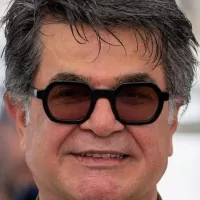Ross William Ulbricht, also known as "Dread Pirate Roberts", is infamous for creating and running Silk Road, an online black market operating on the dark web from 2011 to 2013. This hidden platform facilitated the illegal sale of drugs and other illicit goods and services, leading to Ulbricht's arrest and subsequent life imprisonment. His case brought significant attention to the complexities of cybercrime and the dark web.
March 27, 1984: Birth of Ross Ulbricht
Ross William Ulbricht was born on March 27, 1984. This marks the beginning of his life and journey.
2002: Graduation from Westlake High School
Ross Ulbricht graduated from Westlake High School in 2002.
2009: Graduation from Penn State and Entrepreneurial Attempts
Ross Ulbricht graduated from Penn State with a master's degree in 2009. He then attempted day trading and starting a video game company, both of which were unsuccessful.
October 1, 2013: Arrest at San Francisco Public Library
On October 1, 2013, law enforcement arrested Ulbricht at the Glen Park branch of the San Francisco Public Library on suspicion of being the "mastermind" behind the Silk Road website.
October 2013: Arrest of Ross Ulbricht
In October 2013, Ross Ulbricht was arrested by the FBI, leading to Silk Road being taken offline.
2013: Arrest and Silk Road Taken Offline
Ross Ulbricht operated Silk Road until 2013 when he was arrested, and the site was taken offline.
February 4, 2014: Initial Charges Filed
On February 4, 2014, Ulbricht was formally charged with several crimes, including engaging in a continuing criminal enterprise, narcotics conspiracy, conspiracy to commit money laundering, and conspiracy to commit computer hacking.
August 21, 2014: Additional Charges Filed
On August 21, 2014, three additional charges were added to the indictment against Ulbricht.
December 17, 2014: Plea Deal Discussed
A plea deal, potentially involving a 10-year mandatory minimum sentence, was discussed at the final pretrial conference on December 17, 2014, though it was never officially offered.
January 2015: Jury Trial Begins
The jury trial of Ross Ulbricht commenced in January 2015.
February 4, 2015: Conviction on All Counts
On February 4, 2015, following a jury trial that had taken place in January 2015, Ulbricht was found guilty on all counts against him.
May 29, 2015: Sentencing to Life Imprisonment
On May 29, 2015, Ulbricht received a sentence of double life imprisonment plus 40 years, without the possibility of parole. He was also ordered to pay approximately $183 million in restitution.
2015: Conviction and Sentencing
In 2015, Ross Ulbricht was convicted of multiple charges related to his operation of Silk Road and sentenced to life in prison without parole.
2015: Release of "Deep Web" Documentary
The documentary "Deep Web", exploring the events surrounding Silk Road, bitcoin, and the dark web, including Ross Ulbricht's trial, was released in 2015.
January 2016: Appeal Filed with Second Circuit
In January 2016, Ulbricht appealed his conviction and sentencing to the U.S. Court of Appeals for the Second Circuit.
October 2016: Oral Arguments Heard
Oral arguments for Ulbricht's appeal were heard in October 2016.
May 2017: Conviction and Sentence Upheld
The Second Circuit upheld Ulbricht's conviction and sentence in May 2017.
July 2017: Transfer to USP Florence High
Ulbricht was moved to USP Florence High in July 2017.
December 2017: Petition for Certiorari Filed
In December 2017, Ulbricht filed a petition for a writ of certiorari with the Supreme Court, seeking review of his case.
2017: Appeal to the Second Circuit
Ross Ulbricht's appeal to the U.S. Court of Appeals for the Second Circuit was unsuccessful in 2017.
June 28, 2018: Supreme Court Denies Appeal
On June 28, 2018, the U.S. Supreme Court denied Ulbricht's petition for certiorari, declining to review his case.
2018: Supreme Court Appeal Denial
In 2018, Ulbricht's appeal to the U.S. Supreme Court was denied, solidifying his life sentence.
2020: Libertarian Support for Ulbricht's Case
In 2020, Ulbricht's case garnered attention within libertarian circles. The Reason Foundation sought to raise funds, and Libertarian presidential candidate Jo Jorgensen pledged to pardon Ulbricht if elected.
2020: Plea Deal Claims Emerge
In 2020, claims surfaced suggesting Ulbricht had rejected a plea deal that could have resulted in a shorter sentence.
February 19, 2021: Premiere of the Film "Silk Road"
The film "Silk Road", directed by Tiller Russell, premiered on February 19, 2021. The movie depicts Ulbricht's journey in creating the Silk Road website, alongside the ensuing investigations by the FBI and DEA. Actor Nick Robinson portrays Ulbricht in the film.
December 2021: Ulbricht Family's NFT Auction and FreeRossDAO
In December 2021, Ulbricht's family auctioned off a collection of his writings and artwork as an NFT to raise funds for his release. FreeRossDAO, a decentralized autonomous organization advocating for Ulbricht's release, purchased the NFT for 1,442 Ethereum, equivalent to approximately $6.27 million at the time.
May 2022: Congressional Call for Clemency
Congressman Thomas Massie called for a commutation of Ulbricht's sentence in May 2022, marking growing support for his case.
May 2024: Trump's Promise of Clemency
In May 2024, Donald Trump pledged to commute Ulbricht's sentence if re-elected as president of the United States, signaling the case's political significance.
Mentioned in this timeline

Donald John Trump is an American politician media personality and...

Ethereum is a decentralized open-source blockchain platform notable for its...

Thomas Massie is a Republican politician and engineer representing Kentucky's...

San Francisco is a major commercial financial and cultural hub...

Dallas is a major city in Texas United States and...
Texas the second-largest US state by area and population is...
Trending

10 seconds ago Stephen A. Smith criticizes Draymond Green's comments on Nico Harrison as unfair.

27 seconds ago Kris Dunn Recovered From Injury, Briefly Exited Game After Elbow Contact

1 minute ago Al Horford's Role Shifts: Back to Starting Lineup, Then Bench, Mindset Revealed.

1 hour ago Jafar Panahi faces restrictions, continues filmmaking despite adversity and imprisonment in Iran.

1 hour ago Joe Rogan Interviews RFK Jr. on Trump's ICE Raids and US Taxpayer Losses.

1 hour ago Joki? Confronts Dort After Trip, Tempers Flare in Nuggets-Thunder Game
Popular

Jesse Jackson is an American civil rights activist politician and...

Hillary Diane Rodham Clinton is a prominent American politician lawyer...

Jim Carrey is a Canadian-American actor and comedian celebrated for...

XXXTentacion born Jahseh Dwayne Ricardo Onfroy was a controversial yet...

Kashyap Pramod Patel is an American lawyer who became the...

Michael Joseph Jackson the King of Pop was a highly...